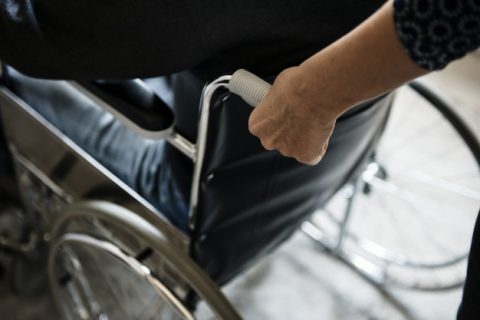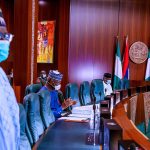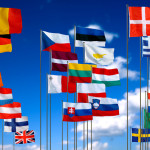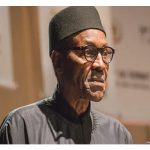OPINION: Dealing With The Perennial Glitches Of The Physically Challenged Persons
Articles/Opinion, Featured, Featured Contributors/Columnists, Latest Headlines Monday, December 16th, 2019
By Jide Ayobolu
(AFRICAN EXAMINER) – A commission that will be responsible for the activities and welfare of people living with disabilities in Nigeria will be established soon, the Federal Government has announced. It said the commission would be the next action to be taken by the present administration with respect to supporting the PLWDs.
The first action, it said, was the presidential assent to the Discrimination Against Persons with Disability Prohibition Act, 2018. The Minister of Humanitarian Affairs, Disaster Management and Social Development, Sadiya Farouq, disclosed this during the celebration of the 2019 International Day for Persons with Disabilities in Abuja.
Farouq said, “The establishment of a commission for people with disabilities is going to be my first document to be submitted to FEC (Federal Executive Council). “The commission will be saddled with the responsibility of the day-to-day affairs and engagement of these persons with disabilities, and they are going to have budgets and programmes that the government is going to execute. It is an important commission for us as a government. “Recall that the government of President Muhammadu Buhari has just signed the Discrimination Against Persons with Disability Prohibition Act. So this is one step which the government has taken and now the next step is for us to have that commission in place.”
The minister said the PLWDs would receive the support of the Federal Government in whatever way they needed it, which was why five ministers from different ministries attended the function to encourage Nigerians living with disabilities. “The significance of this celebration is for them (the PLWDs) to know that they are not left behind; rather they are being carried along and are going to be supported in whatever way they need the government’s support,” Farouq stated. The Permanent Secretary, Federal Ministry of Humanitarian Affairs, Disaster Management and Social Development, Anna-Anetu Aliu, said over 27 million people in Nigeria were living with one form of disability or the other.
When you talk about people with disabilities the picture that instantly comes in your mind are people with serious physical disabilities. However, the term includes a lot more. According to the World Health Organization, this term includes all those who not only suffer physical disability but also disabilities that enforce activity limitations, participation limitations and other forms of impairment disabilities. Personal growth impairments are also considered as disabilities. It is important that you understand all these different aspects in order to know the importance of the situation.
People with disabilities of such kinds which you cannot perceive with your eye also require special care and attention and also our attention. You need to understand the effect that these disabilities cause to the person suffering from them. Some of these disabilities might be from birth, however, you will surely come across various disability scenarios where the person affected by the disability had either met with a recent accident or has undergone some serious illness that has rendered the person with the disability.
The issues related to disability is not merely the fact that the person is suffering from certain restraints in physical or mental or social aspects but it goes beyond this point in concern about the livelihood of the person affected with such disabilities. Governments and global organizations like the WHO are trying to find the solution to help these persons with the proper means of sustaining themselves.
Disability is part of the human condition. Almost everyone will be temporarily or permanently impaired at some point in life, and those who survive to old age will experience increasing difficulties in functioning. Most extended families have a disabled member, and many non-disabled people take responsibility for supporting and caring for their relatives and friends with disabilities. On the other hand, Disability is complex, dynamic, multidimensional, and contested. The transition from an individual, medical perspective to a structural, social perspective has been described as the shift from a “medical model” to a “social model” in which people are viewed as being disabled by society rather than by their bodies. The medical model and the social model are often presented as dichotomous, but disability should be viewed neither as purely medical nor as purely social: persons with disabilities can often experience problems arising from their health condition.
According to the World Bank’s World Report on Disability, about 25 million Nigerians have at least one disability, and 3.6 million Nigerians have very significant difficulty. Article 1 of Nigeria’s Convention on the Rights of Persons with Disabilities (CRPD) provides that, “persons with disabilities include those who have long-term physical, mental and intellectual or sensory impairments in which interactions with various barriers may hinder their full and effective participation in society on an equal basis with others.” Such barriers include access to education, healthcare, public facilities, negative stereotypes, dearth to public awareness and understanding of disabilities, and more. Indeed, the words of former Secretary-General of the United Nations Ban Ki-Moon that “education promotes equality and brings people out of poverty,” ring true for both non-disabled and disabled citizens. Education will build the capacities of PWDs, ultimately reducing poverty and boosting prosperity, the World Bank’s twin goals, and also re-echoes several of the 2030 Sustainable Development Goals.
The World Health Organization (WHO) reported in a 29-country study in Africa that the foremost cause of disability was infectious disease. The leading conditions included malaria, polio and leprosy, along with other communicable diseases such as tuberculosis, trachoma, media, meningitis and parasitic disease. The incidence of many of these communicable diseases has been greatly reduced in developed countries but they remain a significant cause of disability in LICs. The second major cause of disability was war, trauma or accidents (primarily road accidents). The third most common cause of disability was congenital and non-infectious diseases such as epilepsy. Other causes of disability include malnutrition due to vitamin A, iron and iodine deficiency and chronic medical conditions such as rheumatic diseases, stroke and diabetes. The HIV/AIDS epidemic has further contributed to the prevalence of disability because many people living with HIV develop different types of impairments and functional limitations. The study found that chronic conditions such as heart disease and diabetes are in large part outpacing traditional public health targets such as malnutrition and childhood infectious diseases, Mental illness and low back pain are the most common causes of disability.
Experts in the disability-related fields consider negative attitude as the greatest barriers to the field of education of special needs. Negative attitudes towards the fields in terms of funding and political will to implement its policies, in turn, leads to negative attitudes to its clients. Students with disabilities continue to face negative attitudes and stereotypes in the education system. Lack of knowledge about and sensitivity to disability issues on the part of some educators, staff and students can make it difficult for students with special needs to access educational services equally with the so-called ‘normal’. Until the government and our political leaders rise up and continue to pay particular attention to their needs with an effort to increase their participation in community life, societal prejudices will continue to abound. Inclusiveness of the field and persons with special needs will be greatly jeopardized except negative attitudes and segregation are ended. Attitudinal barriers can take the form of misconception, mythical beliefs and even labelling. Excessive exhibition of these by society could lead to psychological and emotional burdens on persons with special needs.
More so, special needs education to cater for the physically challenged expects that barriers will be broken where:
· Health, education and social care are organised around the needs of children and their families, with better information-sharing and assessments leading to early intervention
· Persons with special needs having access to good quality childcare and early year’s provision in their local community.
· Schools with the skills and resources to enable them to take prompt action to help children who are falling behind their classmates
· Special education teachers and early year’s staff spend more time supporting early intervention and less time on special education-related paperwork.
· Local authorities extend special needs education advice and support services to early years settings in developing the skills and awareness on issues related to disabilities.
· Government funding should be increased and disbursed appropriately to schools to support early intervention and effective management of resources, through practical guidance, expert advice and support
· Government cut bureaucracy on issues and decision affecting persons with special needs by helping them to focus on the essentials and make better use of the available resources
· Legislative provisions to cater for the health, education, social welfare, removal of stigma, negative attitudes and other benefits that will enable social inclusion.
The most challenges facing persons with Disabilities can be classified thus,
i) They face challenges in accessing health services as they usually get humiliated by health providers, while health centres’ infrastructure pose obstacles for them to reach the areas
ii) There is gender imbalance of employment opportunities to PWDs as men with disabilities are more employed than that of their counterparts and that the working environment is not friendly to PWDs.
iii) Persons with Disabilities face challenges as denial of employment, economic marginalization. They are regarded as people who cannot contribute to anything, are dependant and always wait to be helped.
iv) Lack of physical power. PWDs also lack physical energy to fight sexual aggressors
v) Poverty. Most people with disabilities are poor so they look for money and get HIV/AIDS in the process.
vi) Limited access to information. They are marginalized groups who are not easily reached by health information sites, for example, many people with disabilities do not have the opportunity to access where HIV/AIDS discussion, blood screening and sensitization take place. In the same manner, they deliberately have unprotected sex with them.
vii) Wrong belief that women with disabilities are not HIV/AIDS infected. Some men tend to assume that women with disabilities are less likely to have HIV/AIDS and so involve them in sexual relations.
Possible solutions The African states’ including Nigerian governments in cooperation with civil society are supposed to implement the following:
1. Formulate and implement national policies, programmes and legislation to promote the full and equal participation of persons with disabilities;
2. Promote the participation of Persons with Disabilities in the process of economic and social development;
3. Promote the self-representation of People with Disabilities in all public decision-making structures;
4. To enhance support services for disabled persons;
5. Promote special measures for children, youth, women and elderly persons with disabilities;
6. Ensure and improve access to rehabilitation, education, training, employment, sports, the cultural and physical environment;
7. To promote and protect disability rights as human rights;
8. To support the development of and strengthen ‘Disabled Persons’ organizations;
9. Mobilize resources.
It is therefore expected that with commission for the physically challenged persons in place, it will go a very long way to more than ever before bring their challenges to the fore and will assist in no small measures in resolving them and making them live a more qualitative life.
Related Posts
Short URL: https://www.africanexaminer.com/?p=50243






















